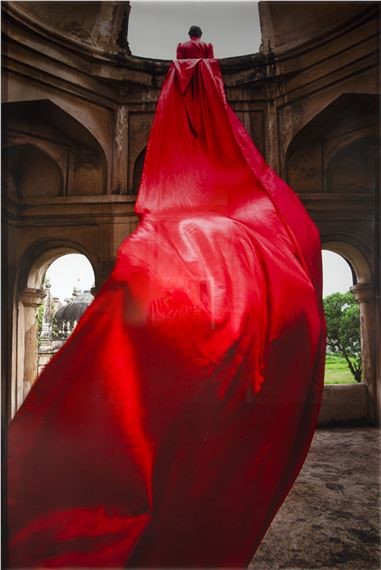Africa-Asia: A New Axis of Knowledge
Key to the Africa-Asia programme of IIAS is bolstering South-South linkages and knowledge production. Bringing this in a way that reverses traditional directions of knowledge sharing to the Global North is crucial to ensure an equitable stake in global knowledge. The Africa-Asia programme therefore sets this mission of inversing traditional modes and directions of knowledge sharing at its core. It has done this since its beginnings, and continues to do so in its flagship conference, ‘Africa-Asia, a New Axis of Knowledge.’
It is a great privilege to be able to take the position of Africa-Asia Coordinator at the IIAS. My own research interests have always laid at the intersection of International Relations, South-South engagement, and specifically, China-Africa relations. While much of my focus has been on foreign policy, my research has always been informed by a context-driven, humanist perspective, particularly insofar as knowledge production is concerned. My personal history has been one of intercultural connections and heritage of Africa and Asia; in fact, a lineage more common than often assumed within the African context. Being of both Khoisan and Malay background, the Africa-Asia connections have always been evident and tangible. My interests in the arts, cross-cultural communication, and identity have intersected with my academic interests on foreign policy, culminating in where I currently find myself, in the fascinating and exciting role of Africa-Asia Coordinator at IIAS.
With years of experience in policy advising, advocating for humanist principles in what are often seen as the ‘harder’ sciences of economics and political science has enabled me to bring the contextual and human element to the often decontextualized and clinical approaches of foreign policy in Europe. Positionality is key, and we are all informed by and through our contexts, exchanges, and experiences.
It is therefore with great excitement that I embark on this new role that enables me to connect my professional and personal interests, in an environment that is dynamic, ever-changing, and full of new knowledge to explore. This Africa-Asia space is meant to further the existing ‘new’ axis of knowledge that IIAS has built, with more interactive engagement, a community for exchange, and exploration and dialogue.

Thania Petersen, Remnants 4 (2016)
While travelling to Surat in India, the artist visited the mausoleums of the men who forcibly moved her people from Indonesia to the Western Cape. The city of Surat was a directorate of the Dutch East India Company in the 17th century. The Dutch and British mausoleums in this city reveal power-hungry competition and the exaggerated grandeur that far exceeds the simplicity of the grave markers these men would have received back home. Strikingly regal and statuesque, Petersen plants herself upon these graves, trailing a red train behind her that symbolically dredges up violence that this imposing architecture attempts to conceal … she takes over this colonial space with a towering splendour and inclines the remnants of her past towards renewed inner strength.
To showcase the heritage of many in Africa, which directly speaks to the Africa-Asia connections, I hope that you as readers will enjoy the poem written by Jeanine Benjamin, exploring her own African-Asian (and beyond) roots, and the complexities they have engendered with her own identity vis-à-vis society. This story is not unique, but it gives us a view into these very real entanglements. Complementing this is the awe-inspiring work by Capetonian artist Thania Petersen. Her piece – Remnants 4 (2016) – captures the history, triumph, and future of Africa-Asia connections. In the photography series, Remnants 4 depicts the artist in Surat, India, at the mausoleums of many of the Dutch East India Company’s decision-makers who created the orders that would eventually send slaves and political prisoners from Indonesia to the Cape Colony. This series is thought-provoking in its insights into the connections between Africa and Asia, both tangible and intangible.
IIAS’s Africa-Asia programme is set to explore these entanglements, past, present, and future, in interdisciplinary and thought-provoking discussions by bringing together scholars, artists, and practitioners who work at these intersections. Importantly, it will also bring together a range of experiences in the Africa-Asia space, where diverging experiences and insights can meet.
Stacey Links is Coordinator Africa-Asia Programme at IIAS.
s.links@hum.leidenuniv.nl